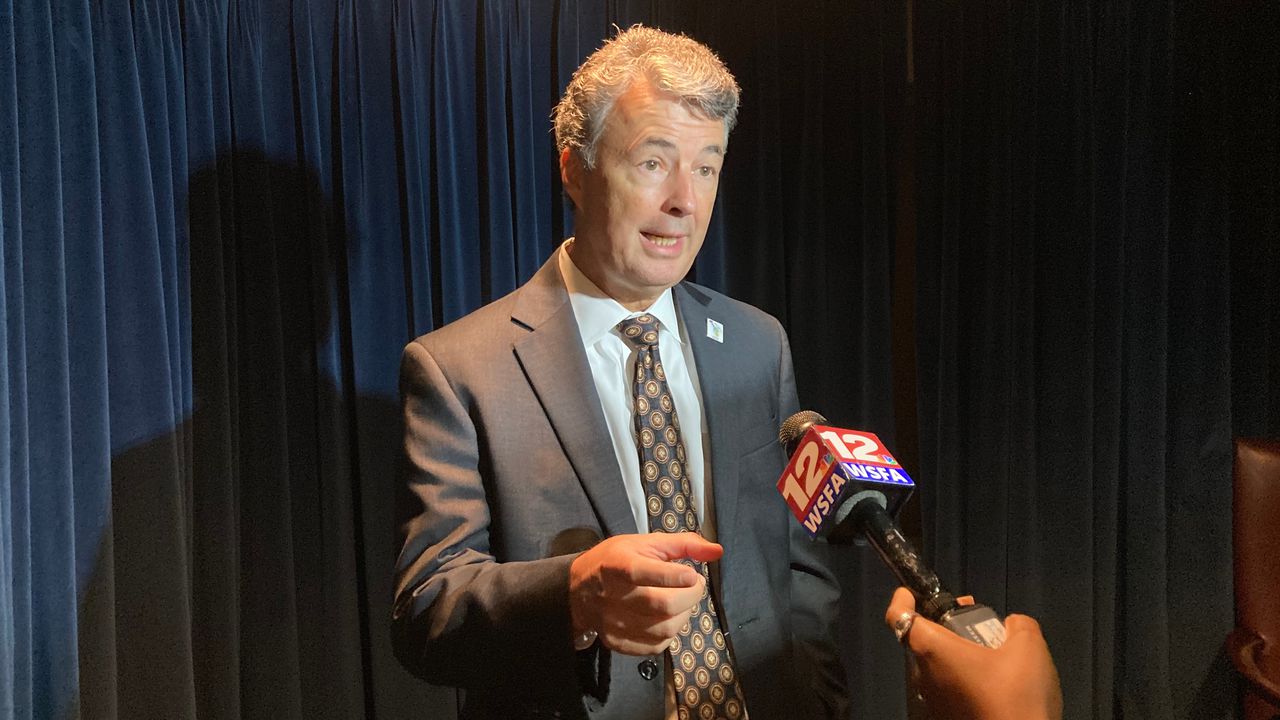Bill to crack down on lawbreakers in ‘criminal enterprises’ advances
Alabama lawmakers are on the verge of passing a bill that would increase prison sentences for crimes committed on behalf of a “criminal enterprise,” defined in the bill as a coalition of three or more people involved in criminal activity.
The bill, backed by Attorney General Steve Marshall and law enforcement, has bipartisan support and passed the House 95-6 Thursday after passing the Senate 32-0 a week ago. The bill initially used the term “gang” but was changed to “criminal enterprise” at the request of some Black lawmakers.
“The purpose of the bill is not to attack groups, but it’s to attack groups that engage in criminal activity,” Marshall said after the bill passed the House. “And I think that’s where we saw some of the confusion. We have to be able to define who the criminal enterprise is. And the bill gives that opportunity. But it’s the next step that becomes what this bill is about. It’s that criminal enterprise engaging in criminal activity. This puts Alabama in the majority of states. It gives us a tool to be able to deal with this type of activity. It also creates a very specific disincentive for those who want to engage in this crime to be able to think twice about doing so.”
Rep. Allen Treadaway, R-Morris, former assistant chief of the Birmingham Police Department, said law enforcement needs more tools to crack down on people who collaborate on violence and drug crimes that repeatedly terrorize neighborhoods. Treadaway is the House sponsor of the bill, SB143, by Sen. Will Barfoot, R-Montgomery.
“This bill goes a long way toward being able to remove them from the street,” Treadaway said. “It’s no secret that they’re coming back and committing these same crimes over and over.”
Some Democrats in the House of Representatives today questioned whether the bill would make a difference or would be just a continuation of Alabama’s policies of long prison sentences that do not address root causes of crime and easy access to guns.
Rep. Patrick Sellers, D-Birmingham, said expansion of social services and mental health care would accomplish more to reduce crime over time than the threat of more time in prison.
“It saddens me over and over again to see more legislation that’s lock-’em-up-and-throw-away-the-key’ …. without addressing what the real problems and concerns are within our communities,” Sellers said. “And that’s doing the rehab on the front end and not on the back end.”
“We continue to bring legislation to add Class A felonies,” Rep. Juandalynn Givan, D-Birmingham, said. “I don’t know when it’s going to end. There are enough laws on the books in the state of Alabama to cover any charge that we have for any crime. We need to be bringing legislation to take these guns out of the hands of these young folks that are killing people in mass numbers. And a lot of these kids are not in gangs. They’re not.”
Asked about the concerns that longer prison sentences will not reduce the problems caused by gang violence, Marshall said other states, including Florida, have had success with similar legislation.
“We’ve got to be able to attack the problem,” Marshall said. “What we’ve seen is organized activity throughout our state is contributing to many of the loss of lives and significant property crime that are occurring. This is a way to be able to aggressively deal with it. We think it’s going to be successful and we’ve seen other states be able to do the same thing.”
Rep. A.J. McCampbell, D-Livingston, who worked in law enforcement, said he was in favor of the bill after changes made by the Senate.
“I’m actually concerned and tired of groups terrorizing the citizens in our community,” McCampbell said. “And when I say terrorizing, people are afraid to even come forward. They are afraid to come out of their homes.”
But McCampbell said the Legislature also needs to consider how to reduce the easy availability of military style weapons.
“I’m a Second Amendment person,” McCampbell said. “I believe in my guns. I have guns. But our assault weapons are weapons of war. And one of the things we need to do as society is look at how prevalent they are in our community.”
House Minority Leader Anthony Daniels, D-Huntsville, said changes the Senate made in the bill alleviated concerns about unintended consequences. Daniels said he supported the bill.
The bill defines “criminal enterprise members” and would result in enhanced punishments for crimes committed on behalf of a “criminal enterprise.” For example, a Class A felony would carry a sentence of at least 25 years. Class B felonies would be punished as Class A, and Class C would be punished as Class B. Crimes involving the use of firearms would also carry mandated prison terms.
Defendants 16 or older would be tried as adults if charged with any Class A felony or crimes involving use of a deadly weapon, an element of causing of death or serious, or use of a dangerous instrument against police, court officials, jurors, witnesses, or teachers.
“One of the things we’ve seen is a significant decrease in the age of those who come together for criminal purposes,” Marshall said. “And this is again designed to make sure we can not only hold individuals accountable but also to create that deterrence for those who choose to do so.”
The House added a technical amendment to the bill Thursday, so the Senate will have to concur with that change for the bill to get final passage and go to Gov. Kay Ivey, who could sign it into law.
Read more: Alabama legislation removes ‘gangs’ in favor of ‘criminal enterprises’
